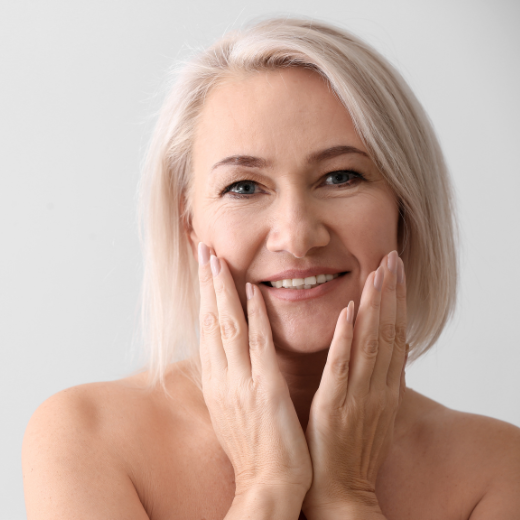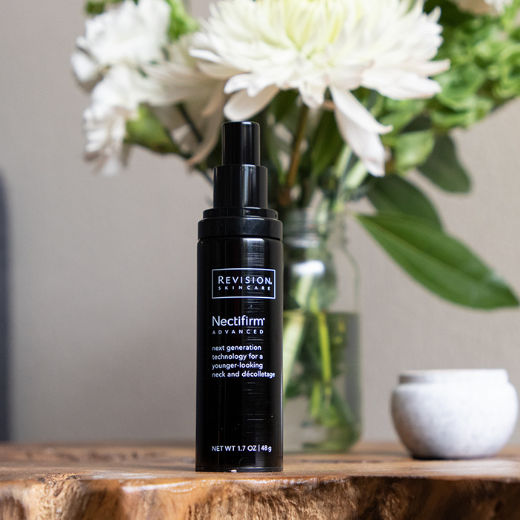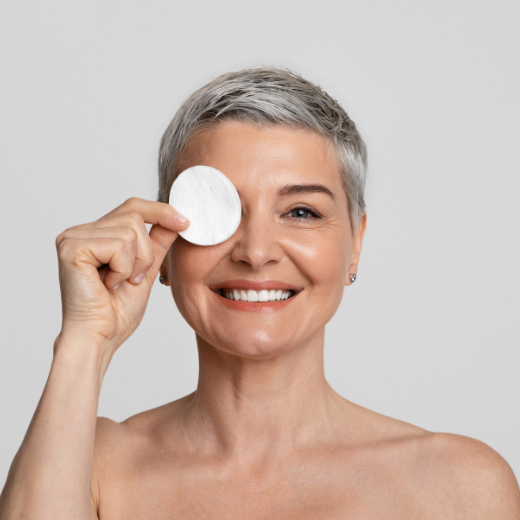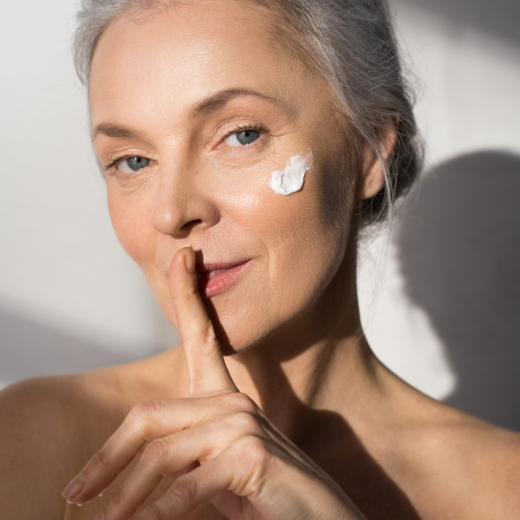Mysterious Skin Care Terms Defined: Your Anti-Aging Skin Care Glossary
Posted by Nikki Wisher on Mar 26th 2024
Ever picked up a skin care product on the shelf and had to double-check that the label was actually in your language because you didn’t understand half of the so-called words you were seeing? Yeah, we’ve all been there. Not after today, though! One of the most empowering ways to take better care of your skin is to have the knowledge to make informed decisions about the products you’re buying. So today, I’m helping you navigate the wonderful (and often confusing) world of anti-aging skin care with this glossary.
Antioxidants: Compounds that protect your skin from the damage caused by free radicals (don’t worry, we’ll talk about free radicals in a moment), helping you to minimize premature aging
Ceramides: Fats that help the cells in your epidermis (the top layers of your skin) together, strengthening your skin’s protective barrier to keep moisture in. You’ll often find these in anti-aging moisturizers because hydrated skin looks younger and more vibrant.
Collagen: A protein your body produces that makes your skin firm and smooth – one of the most important factors in looking youthful and refreshed. But your body produces less collagen as you get older, starting as early as your 20s, which is a major part of facial aging.
Crow’s feet: Lines or wrinkles that show up in the outer corners of your eyes, with several lines branching out from the corner of your eye like a starburst (or like the prongs of a crow’s foot)
Elastin: A protein in your skin that would remind you of elastic, helping your skin retain its shape and flexibility. Elastin is vulnerable to sun damage and with less elastin, your skin is less firm.
Free radicals: Molecules from pollution, sun radiation, and other sources that can damage your skin. Here’s how they work: if you think back to the chemistry classes of yore, you might remember that every atom has electrons. Electrons are only happy when they have besties, and a free radical is an atom that has an unpaired electron. That lonely electron wants to find a bestie by bonding with another atom. When that happens within your skin, those free radicals damage your skin cells when they latch on. Antioxidants protect you from that damage by bonding with the free radicals’ lonely electrons so they don’t bond with your skin cells.

Frown lines: The two little vertical wrinkles that form between your eyebrows. They become especially pronounced when you frown, which is where they get their name, but you might also hear them called “number elevens” or, in more clinical settings, glabellar wrinkles.
Growth factors: Proteins that contribute to your body’s ability to develop renewed cells (in anti-aging skin care, growth factors are used to stimulate collagen and elastin production)
Hyaluronic acid: An anti-aging favorite! Hyaluronic acid is produced naturally in your body but it’s also heavily used in skin care for its moisturizing abilities. It’s capable of holding 1000 times its weight in water, making it perfect for holding moisture in your skin.
Hyperpigmentation: Excess pigment in your skin, typically in the form of brown spots like age spots. Hyperpigmentation most often comes from sun damage because your skin produces extra pigment to fight the sun’s radiation before it harms the deeper layers of your skin. But it can also come from other causes like past inflammation and acne.
Marionette lines: Wrinkles that show up as a straight line down from each corner of your mouth to your chin. Picture the wood block that makes up a marionette or ventriloquist dummy’s mouth.
Nasolabial folds: Specific wrinkles that form as curved lines from your nostrils to the corners of your mouth. You might hear them called parentheses or smile lines too.
Neck bands: Wrinkles that are horizontal lines across your neck. You can often reduce these neck bands with a neck firming product.

Peptides: Protein building blocks that allow your body to produce more skin-firming collagen and elastin. You may have noticed that both collagen and elastin – the core components that make your skin look young – are proteins. Your body needs the right ingredients to be able to produce more of those proteins, and certain peptides are those magic ingredients.
Photoaging: Premature aging that is caused by sun damage, including fine lines and wrinkles, lax or sagging skin, and brown spots (AKA liver spots or age spots)
Retinol: One of the most revered ingredients in anti-aging skin care! As a vitamin A derivative, retinol encourages your body’s cell turnover (clearing damaged skin cells and replacing them with refreshed skin cells) which reduces fine lines and wrinkles and improves your skin texture.
Serum: A type of skin care product that has a thin consistency because of its very small particle size. That small particle size allows the serum to reach deeper into your skin and deliver concentrated, powerful ingredients. Anti-aging serums are among the most powerful products you can get at home for rejuvenation.
Skin laxity: A loss of firmness in your skin. Laxity is a natural part of aging as your skin’s collagen and elastin levels drop, and in its early stages it just looks like your skin is slightly less taut, but it progresses into sagging skin.
Putting Your New Anti-Aging Skin Care Knowledge to the Test
There you have it, the top terms you’ll want to know in anti-aging skin care. While anti-aging skin care products can have a practically infinite number of different ingredients, you now have the most common and practical terminology you need to start deciphering those product labels and finding out which ones are the most suited to you.


